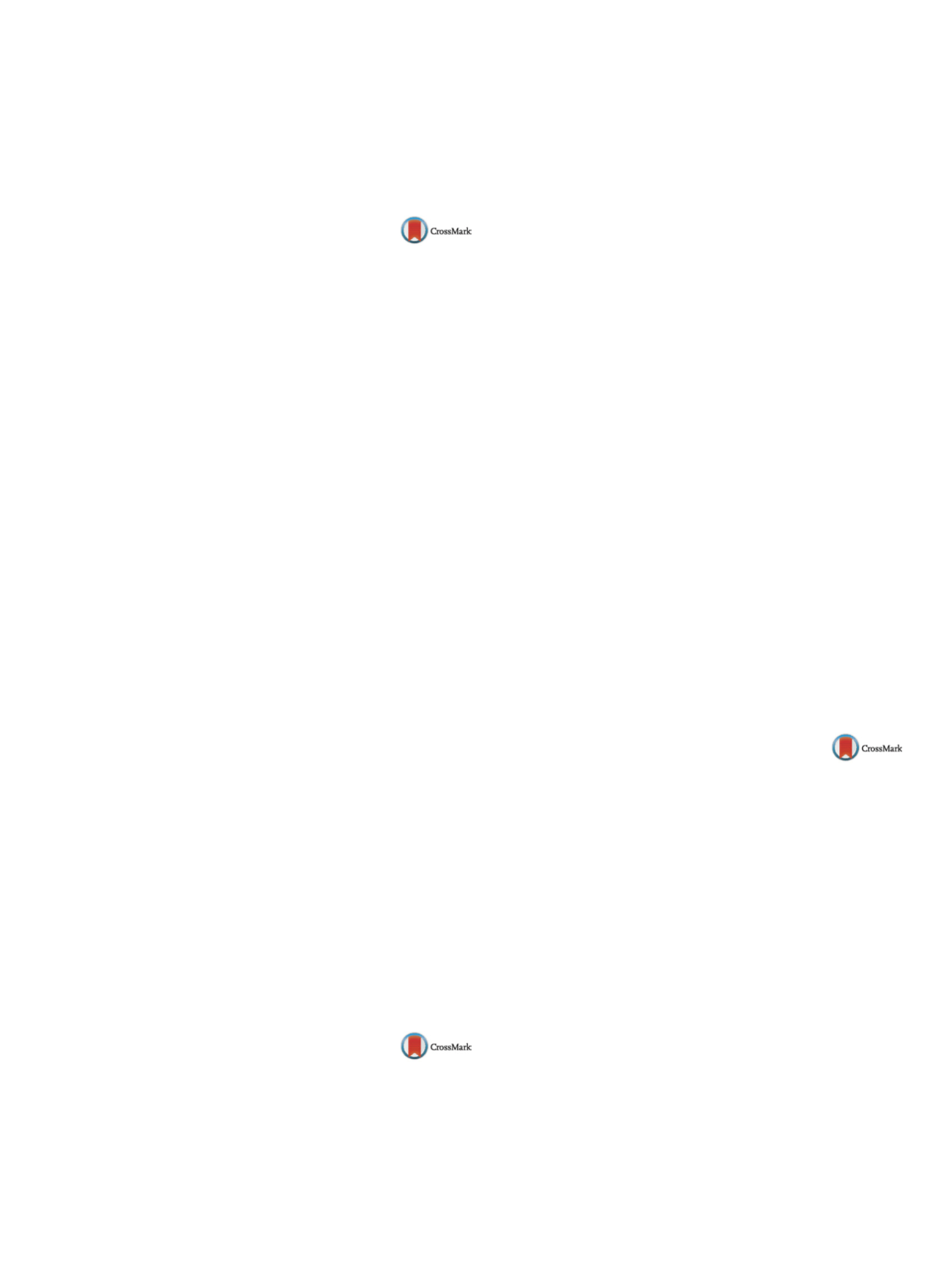

25th European Congress of Psychiatry / European Psychiatry 41S (2017) S583–S644
S643
midal effects, which deeply contribute to the decrease of quality
life of these patients.
Disclosure of interest
The authors have not supplied their decla-
ration of competing interest.
http://dx.doi.org/10.1016/j.eurpsy.2017.01.1063EV0734
Efficacy of cbt plus acceptance &
commitment therapy versus cbt alone
for obsessive-compulsive disorder.
Protocol for a randomised
single-blinded superiority trial
A. Pozza
1 ,∗
, S. Domenichetti
2, N. Giaquinta
3, D. Davide
41
University of Florence, Department of Experimental and Clinical
Medicine, Florence, Italy
2
Azienda USL Toscana Centro, Mugello Functional Unit of Adult
Mental Health UFSMA Mugello, Florence, Italy
3
Centre of Cognitive and Behavioural Therapy CTCC, Outpatient
centre, Florence, Italy
4
University of Florence, Department of Health Sciences, Florence,
Italy
∗
Corresponding author.
Introduction
Cognitive behavioural therapy (CBT) is the first-line
psychological treatment for Obsessive-Compulsive Disorder (OCD).
However, 30% of individuals have a null or partial response. Prelim-
inary evidence suggested that Acceptance & Commitment Therapy
(ACT) may be effective. No study investigated whether the associ-
ation of CBT with ACT may improve outcomes of CBT alone.
Objectives
This paper presents the protocol of a trial where indi-
viduals with OCD will be randomly assigned to CBT alone or CBT
plus ACT. Primary endpoints will be the number of individuals
meeting OCD diagnostic criteria at post-treatment and follow-up.
Secondary endpoints will be self-reported depression, anxiety, dis-
gust and guilt, and obsessive beliefs. It is hypothesized that CBT
plus ACT is associated to fewer individuals meeting OCD criteria
and greater reductions in secondary endpoints.
Methods
A single-blinded superiority randomised design will be
used. Primary/secondary outcomes will be administered at base-
line, post-treatment and 6-month follow-up. Treatment duration
will be 25 weekly sessions in both conditions. Individuals (age
≥
18 years) with OCD diagnosis will be recruited at mental health
services in a 60.000 inhabitants area in Italy. Chi squared will be
computed to test group differences on OCD diagnosis. ANCOVAs
will be calculated entering baseline scores as covariates, group
allocation as random factor and primary/secondary outcomes as
dependent variables.
Results
To obtain a medium effect size, 80% power and 0.05 sig-
nificance, a priori power analysis suggests inclusion for at least 34
individuals as total sample.
Conclusions
A description of the protocol will be provided.
Strengths and potential limitations will be addressed.
Disclosure of interest
The authors have not supplied their decla-
ration of competing interest.
http://dx.doi.org/10.1016/j.eurpsy.2017.01.1064EV0735
Intolerance for uncertainty is
a prognostic factor of negative
response after intensive inpatient CBT
for medication-resistant
obsessive-compulsive disorder
A. Pozza
1 ,∗
, G.P. Mazzoni
2, D. Dèttore
31
University of Florence, Department of Experimental and Clinical
Medicine, Florence, Italy
2
“Studi Cognitivi”, Postgraduate Program on Cognitive
Psychotherapy, Florence, Italy
3
University of Florence, Department of Health Sciences, Florence,
Italy
∗
Corresponding author.
Introduction
Cognitive theories of Obsessive–Compulsive Disor-
der (OCD) have identified six types of beliefs, which have a role
as vulnerability and maintaining factors: Inflated sense of respon-
sibility, Threat overestimation, Importance of thoughts, Control of
thoughts, Perfectionism and Intolerance for uncertainty. As pre-
vious research showed that strong obsessive beliefs are linked to
severe OCD symptoms, it could be hypothesized that they act as
prognostic factors of negative response after cognitive behavioural
therapy (CBT). However, poor research investigated this aspect.
Objectives
The aim of the current study was to examine which
obsessive beliefs could predict aworse response after intensive CBT
in a group of inpatients with medication-resistant OCD.
Methods
Forty inpatients [mean baseline Y-BOCS = 26.70, SD
= 7.01] with medication-resistant OCD underwent 5-week inten-
sive CBT including daily and prolonged exposure and response
prevention (2.5 hours in the morning, 2.5 hours in the afternoon).
All individuals have had inadequate symptom response after prior
serotonin-reuptake inhibitor trials. The Y-BOCS, BAI, OBQ-87, and
BDI-II were administered at baseline and post-treatment.
Results
Inpatients who endorsed stronger intolerance for uncer-
tainty, measured by higher scores on the OBQ-87 Intolerance for
uncertainty scale, showed worse response after CBT, measured
by having still higher Y-BOCS scores at post-treatment ( = 0.37,
t
= 2.48,
r
2 = 0.14,
P
< 0.05). No effect of the other beliefs emerged.
Conclusions
Current data demonstrated the role of intolerance
for uncertainty as predictor of negative response after intensive
CBT for resistant OCD in inpatient setting. Augmentation strate-
gies should be introduced to improve outcomes of inpatients with
intolerance for uncertainty.
Disclosure of interest
The authors have not supplied their decla-
ration of competing interest.
http://dx.doi.org/10.1016/j.eurpsy.2017.01.1065EV0736
Cognitive behavioral therapy added to
pharmacotherapy in patients
suffering from pharmacoresistant
obsessive-compulsive disorder
J. Vyskocilova
1, J. Prasko
2 ,∗
, J. Sipek
3, M. Slepecky
41
Charles University in Prague, Prague 5, Czech Republic, Faculty of
Humanities, Prague, Czech Republic
2
University Hospital Olomouc, Department of Psychiatry, Olomouc,
Czech Republic
3
Faculty of Arts, Charles University in Prague, Prague 1, Czech
Republic, Department of Psychology, Prague, Czech Republic
4
Faculty of Social Science and Health Care, Constantine the
Philosopher University in Nitra, Slovak Republic, Department of
Psychology Sciences, Nitra, Slovak Republic
∗
Corresponding author.
Background
The objective of investigation was to determine
whether patients with obsessive-compulsive disorder (OCD) resis-
tant to drug therapy may improve their condition using intensive,
systematic cognitive behavioural therapy (CBT) lasting six weeks
and whether it is possible to predict treatment outcome using clin-
ical and selected psychological characteristics.
Method
From 66 OCD patients fifty-seven completed program.
The diagnosis was confirmed using the structured mini inter-
national neuropsychiatric Interview. Patients were rated using
the objective and subjective forms of the Yale-Brown Obses-
sive Compulsive Scale (Y-BOCS), objective and subjective forms
of the Clinical Global Impression (CGI), Beck Anxiety Inventory


















